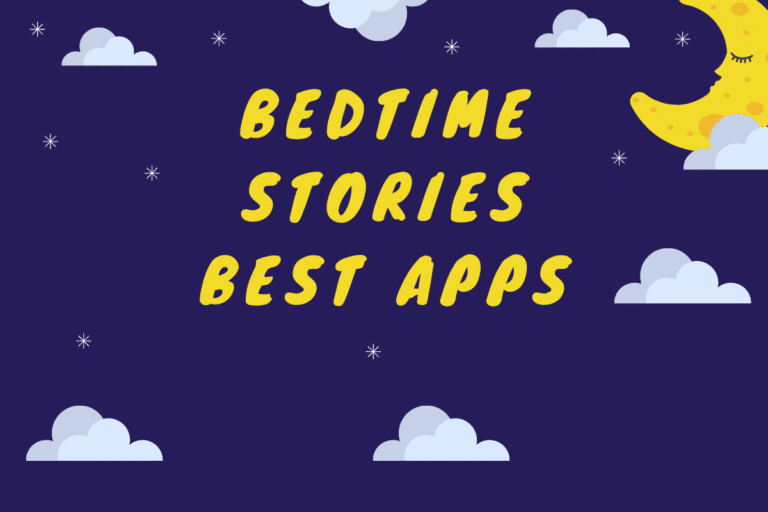Dealing with rejection through guided meditation for rejection
Published on October 16, 2019 – Last Updated on March 29, 2022
“After careful consideration, I can confirm that we will not be progressing your application further, as we feel there are other candidates whose skills and experience come closer to meeting our search criteria.” However, that dreaded rejection e-mail causes a horrendous level of emotional trauma, feelings of inadequacy, and shame in us. Guided meditation for rejection could help deal with the situation.
Rejection is one of those things that we all have to deal with at some point, no matter how beautiful, powerful, intelligent, or qualified we might be. You might not be able to numb the pain in the immediate aftermath of the rejection, but instead of wallowing in self-pity, use rejection as an opportunity to grow. Very often, it is the best catalyst for change with positive consequences.
Our emotions can cloud our judgment at the best of times, and you need to be honest with yourself if you wish to understand: (a) why you might have been rejected; and (b) reduce the risk of it happening again. Rejection can also be a chance to reflect on your goals, assess your approach, and refine it if necessary.
Below are the top 10 things that you can do to remain mentally-resilient in the face of rejection:
- Meditate. As the stigma surrounding mental health issues fades away, the range of resources available to help people confront and overcome their mental woes has multiplied. One of the most powerful tools available for those wishing to achieve a state of deep relaxation is guided meditation. With the helpful suggestions of a ‘guide’, you are taken through a journey that will train the mind to silence the self-doubt, scan your body for tension in order to relieve it, strengthen your resolve to succeed and help you to sleep at night. The great thing about guided meditation for rejection is that today, it can be done from the comfort of your home, at a time of your convenience and you will have an array of guides to select from, all with varying pitches, possessing diverse vocal tones and of different genders. The Mindtastik app ‘MindT’ can be downloaded from Google Play and the App Store and contains a host of relaxing guided meditation recordings to help you to combat negative thinking patterns and enhance your resilience to stress. Check out our blog post on best meditation apps.
- Always have a contingency plan. After you send in your application, have faith in your ability to impress, but also think about what you will do in the event that you are rejected. Do you/will you have other applications in progress which will keep the dream alive? Don’t put all your eggs in one basket as it will leave you mentally vulnerable in the event that things don’t go in the way that your brain may have you fantasising they will, particularly at the beginning of the job-hunting process. There is nothing wrong with a healthy dose of scepticism. With a contingency plan, our brain will refocus more easily upon the alternatives because we have ‘programmed’ it to understand that we have options; one rejection does not mean eternal failure.
- Take ownership for any way in which you may have fallen short. Don’t be afraid to ask yourself: (a) What could I’ve done differently?; and (b) What personal characteristics might have held me back? For the ultimate checklist of factors that can cause rejection, see the infographic below.
- Ask for feedback. What is the worst that could happen? At best, you will have a clearer idea as to how you can improve your overall application for the next company. At worst, you’ll get no response, or a generic e-mail from the company that rejected you, leaving you no worse off than you were before. Use any insights you are able to glean to inform future applications. The information that invariably comes with rejection is gold. This information lets you know that something just wasn’t good enough, and if it happens repeatedly, you know that there is something about the overall package you present that you need to recalibrate going forward. Armed with this knowledge, whether it was directly provided to you or not, you will have a better understanding of the types of roles you should be applying for, how to strengthen your application and how to charm an interviewer once in front of them, leading to more wins in future.
- See rejection as an opportunity. If you’ve been sitting at home for some time now, struggling to catch a break, you will no doubt be familiar with the voice of creativity which starts to rear its head as you begin to wonder what else you could possibly do with your life if the traditional route is no longer available to you. Does it sound familiar? Well, we told you it would, right? Perhaps now is the time to harness that power and re-skill, enrol in a course, seek a loan for that business you always wanted to set up before your assets run dry during the job-search process, learn a new language, start a blog, lose weight, improve your fitness, read a book, or declutter your home or your life. The possibilities are endless when you suddenly have so much free time on your hands, the determination to succeed and fewer obligations. Focussing on developing another skill, or exploring a new avenue whilst the rejection letters continue to flood in, will provide a much-needed distraction from negative thoughts and reduce the burn of the setback.
- Control the narrative. Okay, so you have lost your job or handed in your notice with immediate effect because of a #badboss. You don’t need to tell every Tom, Dick and Harry about your job-hunting woes. When there is nothing else to say, people have a tendency to ask about the last thing they remember you told them was ‘in progress’ and will keep on asking about it in the belief that your situation may have changed and they can, therefore, congratulate you. In the event that your job search is prolonged for any reason, this pressure to have progressed will only create anxiety and demoralisation. Keep the true situation for those family members and/or friends who can keep a secret and truly have your back, as a support network is critical in these trying times. However, make sure they are aware of how you wish for your time off work to be presented to others in order to avoid any awkward gossip. You can simply say that you’re taking a career break to work on any passions, hobbies or dreams you might have such as writing, learning languages, or setting up a small business. A small change such as this will empower you by giving you the confidence to stand in front of gainfully employed people and preserve your self-esteem.
- Reduce the amount of blind applications you make. Try to speak to someone in the organisation before applying, such as an HR representative, a recruiter, or a current member of staff. Not only will having someone in the organisation review your application and give you a quicker assessment as to whether or not it is worth applying, but having contact with the organisation, and not merely being another PDF in the review queue, will strengthen your chances of at least securing an interview.
- Spend time in nature. Finding time to breathe fresh air, gaze at relaxing natural scenery, jog by a lake, or go for a swim in wild waters has been found to have numerous benefits for one’s mood. However, with our corporate lifestyles, we have become so detached from nature, which has brought with it a host of medical complications. Don’t believe me? Check out this article by the Business Insider, on how an office job can shaves years off your life expectancy. Just two hours a week is needed in order to feel the benefits of being at one with nature, that is, 17 minutes a day, or 1 hour, twice a week.
- Don’t neglect your mental health. Remember that despite our best efforts, disappointments may come. However, disappointment does not necessarily have to chip away at our self-esteem. In the same way that if your friend were the person experiencing this period of tribulation you would approach them with compassion, extend that sentiment to yourself. We are often our harshest critics, but there is no need to beat yourself up about the rejection or define yourself by it. If you feel yourself thinking negative thoughts, try to counteract it with positive affirmations and an activity that will leave you feeling calmer afterwards, such as guided meditation for rejection, yoga, or Pilates. If you are in danger of slipping into depression, speak to a health professional, or one of the many organisations that help people to deal with stressful situations. A list of mental health support lines can be found here (UK citizens) and here (US citizens).
Guided meditation for rejection
- Maintain perspective and don’t give up hope. Remember that many of the most successful individuals also suffered strings of rejections and disappointments before they got to where they are today. Don’t forget this saying: when one door closes another door opens
- Anna Wintour was sacked by Harper’s Bazaar for being too edgy.
- Oprah Winfrey was fired as a news reporter for being too emotional.
- Walt Disney was dismissed from a local newspaper for ‘lacking imagination’ and having ‘no good ideas’.
- J.K. Rowling was rejected by twelve publishing houses before Harry Potter became the success it did.
The Essential Rejection Checklist
| Review your application for any spelling or grammatical errors. HR cannot invite everyone for an interview. After reviewing so many applications from people with similar experiences, all it can take is one sloppy spelling error for your application to be tossed aside. |
| Did you provide a cover/motivation letter? A CV/resume without a cover letter is like a butty without bacon, undeserving of mention or consideration when compared to the alternative. The cover letter is a chance for you to succinctly express why you are the best candidate for the role. With the wide range of articles dedicated to helping you produce an attention-grabbing cover letter, this should be a breeze! |
| Did you tailor your application to the company? The problem with intensive job searches is that it is all too easy to mechanize the application process, changing just the company’s name. HR can sniff a copy-and-paste job a mile off, and it will send them running, mainly when you leave in the name of a company you previously applied to, doh! Instead, take the extra time to personalize your application for each company, which can make a big difference in your success rates. |
| Does your CV/resume feature a lot of gaps or show that you have moved around a lot? This is a unique challenge in itself, and you may need to enlist the help of a professional CV writer to present those gaps in the best way possible. It would help if you also considered removing work experience which took place some time ago, so that there is less ammunition for the accusation of job-hopping to be made, however true it may be. |
| Did the role genuinely appear to be the right fit for your skills and experience? If not, don’t take the rejection so hard; focus on applying for more relevant roles, as the so-called ‘spray and pray‘ tactic has been proven to be ineffective time and time again and causes more exhaustion and emotional harm than it is worth. |
| Did you try to speak to someone in the company before applying? Sometimes, ensuring that someone in HR recognizes your name or that someone in the organization can support your application can make a massive difference to your prospects. |
| Did you submit a salary expectation at all? Until you are sat face-to-face with an interviewer, push back on saying anything but ‘negotiable’ if possible, as it is all too easy for you to overestimate or indeed underestimate what adequate remuneration looks like without having had a more in-depth chat as to the demands of the role. If you must provide one, ensure that you give a range. Ultimately, when you provide your expected salary ahead of the interview, HR will often disregard your application if you appear to be undervaluing yourself compared to the market standard or will cause them to go beyond their budget. |
| Did you arrive at least 10 minutes before the interview? Tardiness is not well viewed and can jeopardize your prospects. |
| Have you previously worked with current employees of the target company? It may be the case that your would-be manager has sought advice from employees who previously worked at your last company. For example, suppose you had a strained relationship with them or developed a negative reputation in your former role, which they are aware of. In that case, this can often be the reason behind a company deciding not to progress with your application. |
| Are there specific qualifications you lack that most in your field would have obtained by now? |
| Is there anything about your appearance that may cause people to view you negatively or discriminate against you? Stigma, discrimination, and unconscious bias are natural and innate in humans. Beyond childhood, we have to undo prejudices, and not everyone makes a conscious effort to do so. However, some things are generally within our power to control, such as hairstyle, body odor, weight, facial piercings, exposure of tattoos, choice of clothing, and how attractive we look using the power of make-up. Consider which of the above you could work on and see if the changes affect your performance. As uncomfortable as the truth may be, the key to more positive outcomes lies within it. Even if a difference is not immediately measurable, you will undoubtedly notice a change in your confidence levels, which will help you to weather this storm. However, our name, skin color, and religious background or faith are beyond our control. If you believe that these uncontrollable factors may have contributed to your rejections, consider using a nickname in your CV/resume which is easier to pronounce, or less closely identified with your specific racial origin or religious faith, when applying to companies that are either not diverse, or which do not strip out this information during the application process. |
| Were you perhaps overqualified for the role? This may cause HR to question your motives for applying; no one wants someone using solely out of desperation because, in the long run, you may be unsatisfied with the lack of challenge that the role has to offer you. |
| Have you researched yourself on search engines and reviewed your social media presence? This is an essential part of any modern HR team’s due diligence process. Suppose less-than-respectable photographs of you on nights out/looking like thotiana can readily be found. In that case, you should perhaps consider deleting old accounts, renaming ones currently in use, sending out some DMCA Take Down requests if you are American, or exercising your ‘right to erasure under GDPR if you are European. |
| Did you fail to prepare adequately for the interview or get asked an utterly unexpected question? Now that you know better, you can do better in the future. As for those pesky, random questions, at least you have another one to add to the bank of questions for which you should prepare. |
| Could there have been a lack of chemistry between you and the interviewer(s)? Sometimes, it is best if you and the company part ways in such cases. Those currently employed at the company know the work culture best and are probably well-positioned to determine if you would be the right fit for the team and the organization. |
| Did you apply shortly before the deadline? Sometimes the perfect candidate has already been chosen and is being onboarded. Still, HR and recruiters will allow the job post to run its course if the candidate pulls out for any reason or forget that it is still active. |




